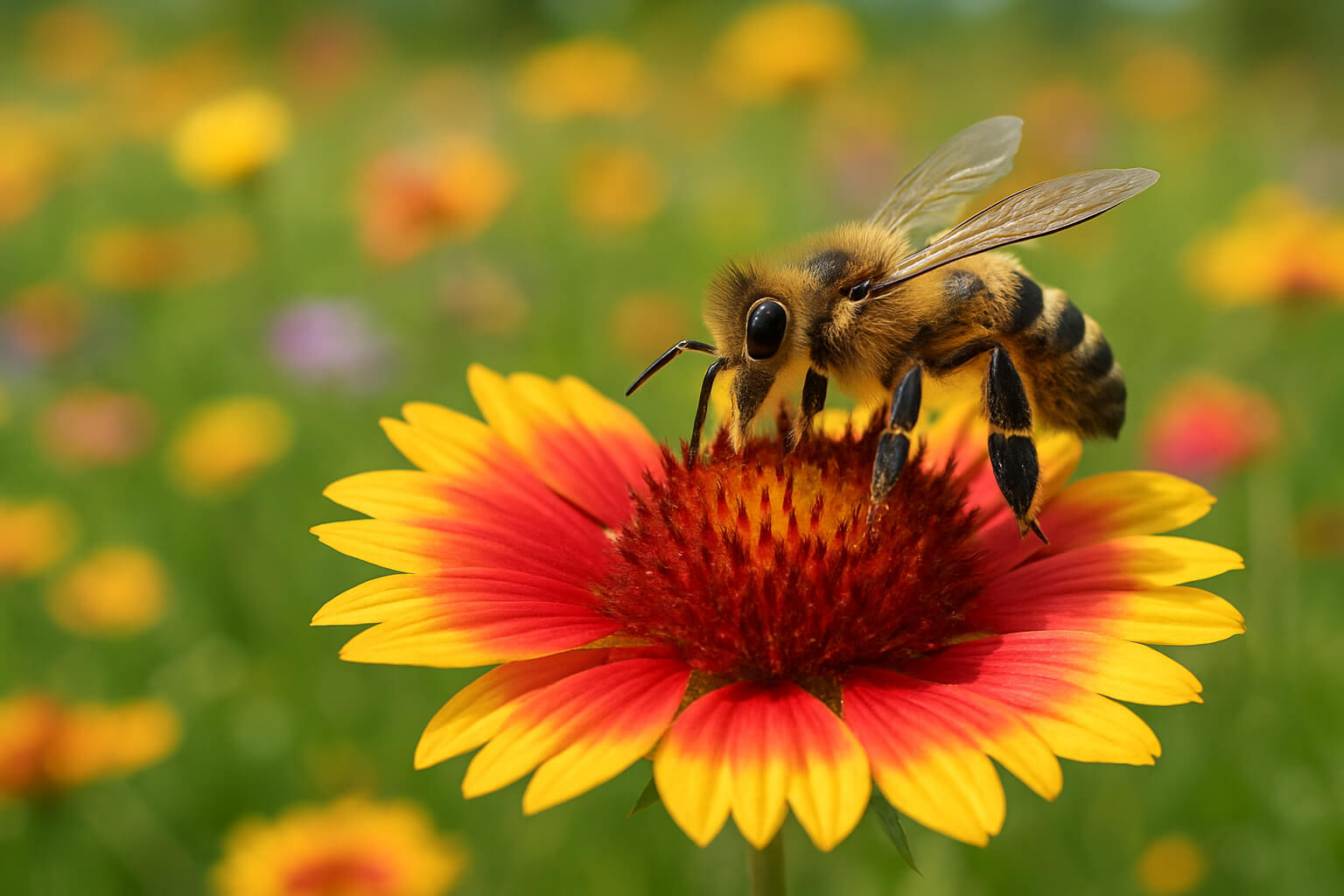August 25, 2025

When we think of the tiny workers behind the scenes of our ecosystems, bees rise to the top of the list. These small yet mighty creatures are more than just honey producers—they are keystone species whose presence or absence has a ripple effect across entire ecosystems.
Bees play a central role in pollination, food production, and maintaining plant biodiversity. But today, these vital pollinators are under severe threat from a combination of human activity and environmental pressures. Understanding what’s at stake—and how we can help—is critical for protecting the future of life on Earth.
Bees are nature’s most efficient and prolific pollinators. While other animals like butterflies, bats, and birds also help with pollination, bees are responsible for pollinating over 75% of the world’s flowering plants, including more than 100 major crops. According to the Food and Agriculture Organization (FAO), pollinators contribute directly to about 35% of global crop production.
Without bees, our diets would be severely limited. Foods like:
…would become expensive, scarce, or disappear entirely from our plates.
But the impact of bees goes far beyond agriculture. By helping wild plants reproduce, bees:
💡 Fun Fact: One in every three bites of food you eat exists because of pollinators, especially bees.
Unfortunately, bee populations around the world are in steep decline. According to the Bee Informed Partnership, U.S. beekeepers lost more than 48% of their managed honeybee colonies in 2023 alone—the highest loss ever recorded.
Global concern over bee decline has led the United Nations to declare May 20th as World Bee Day, aimed at raising awareness and encouraging protective measures.
The good news? You don’t have to be a beekeeper or scientist to make a difference. Everyone has a role to play in reversing pollinator decline.
Create a bee-friendly space at home, school, or your workplace using:
Use guides like the Xerces Society’s planting lists to choose the best plants for your region.
Switch to natural, organic gardening practices:
Tip: Even so-called "bee-safe" pesticides can still be harmful. Always read labels and do your research.
Buying:
…directly supports those who use sustainable and bee-conscious practices. Look for certification labels like USDA Organic, Certified Naturally Grown, or Bee Better Certified.
Organizations like the Pollinator Partnership and The Xerces Society offer toolkits, webinars, and volunteer opportunities.
Bees may be tiny, but their contribution to life on Earth is monumental. Their future—and ours—is intertwined.
By taking simple, intentional steps, we can slow or even reverse pollinator decline. Whether you're planting wildflowers, choosing organic apples, or signing a petition to protect bee habitats, your actions matter.
Let’s protect our pollinators not just for their honey, but for the health, balance, and abundance they bring to every corner of our world.
Stay up to date with the latest tips, expert insights, product reviews, and step-by-step guides to help you grow, create, and succeed—no matter your industry or passion.